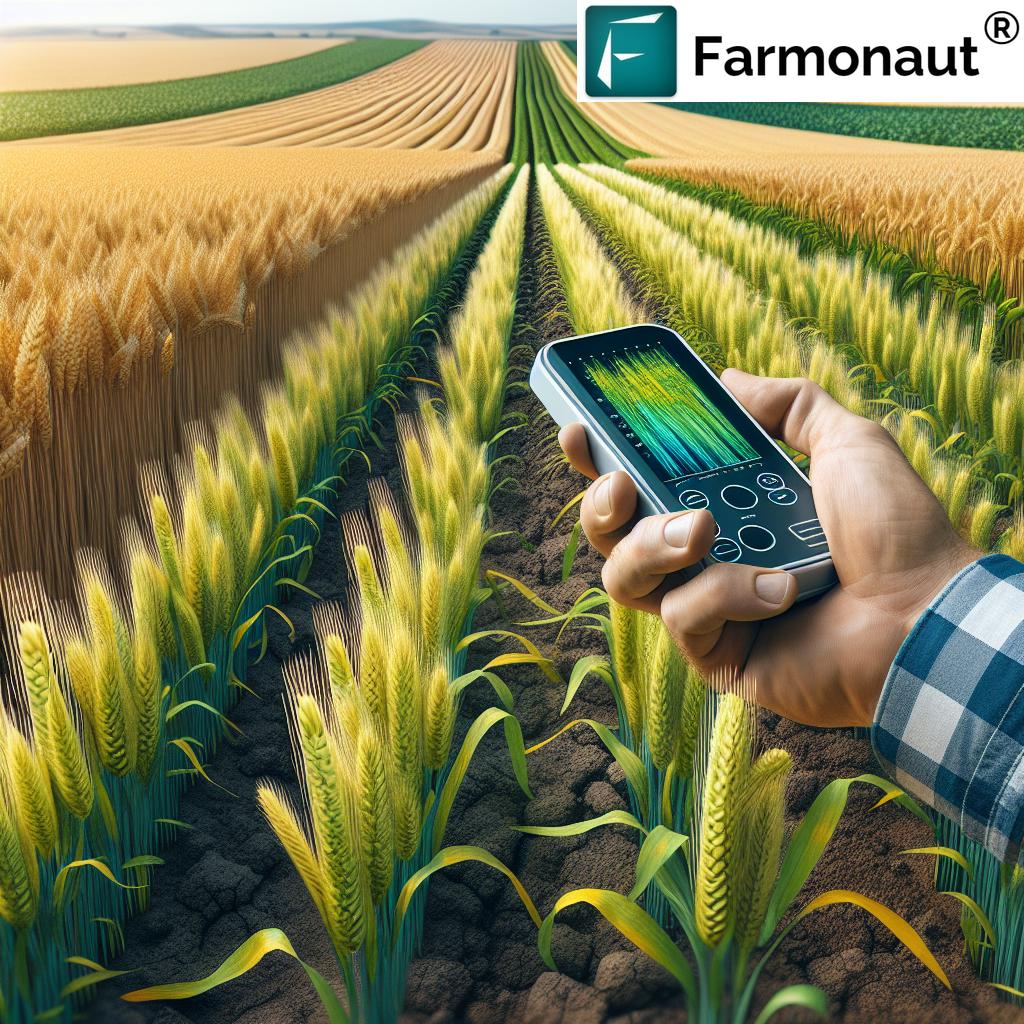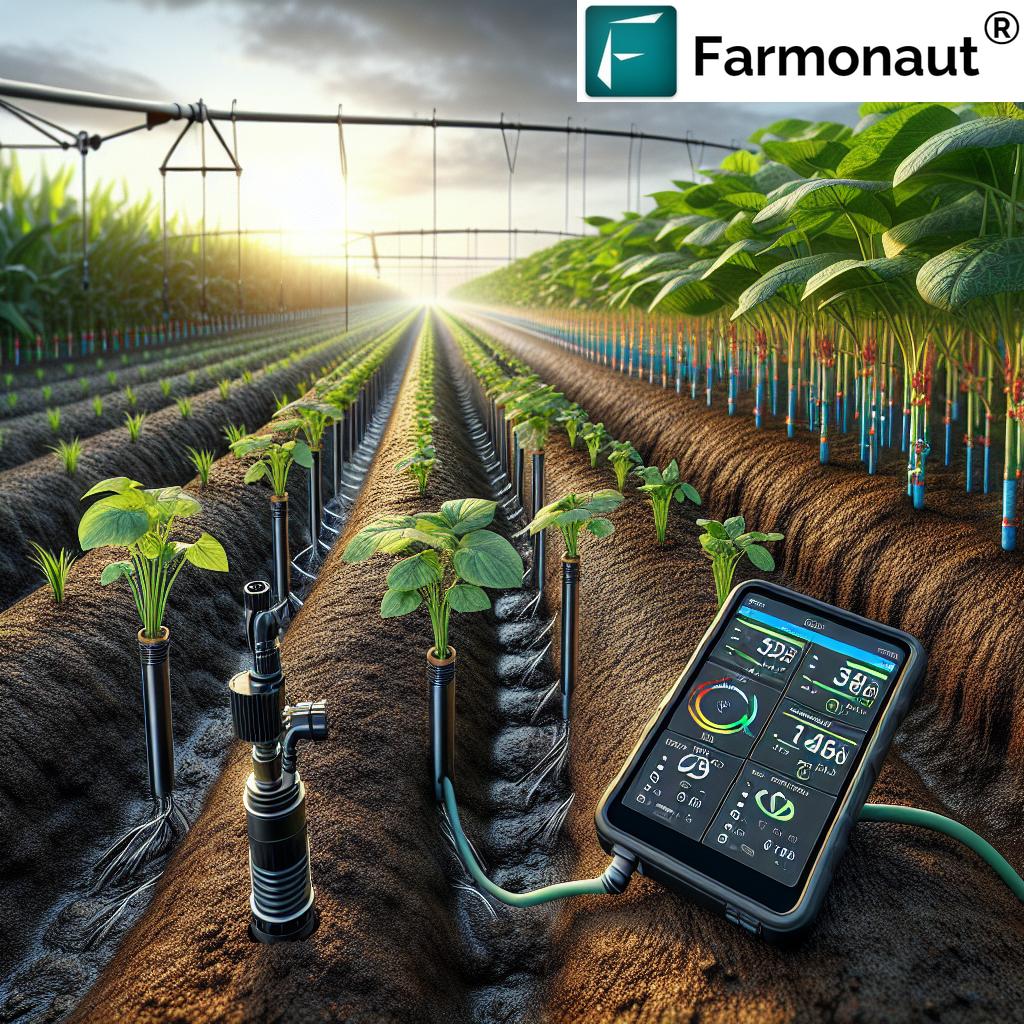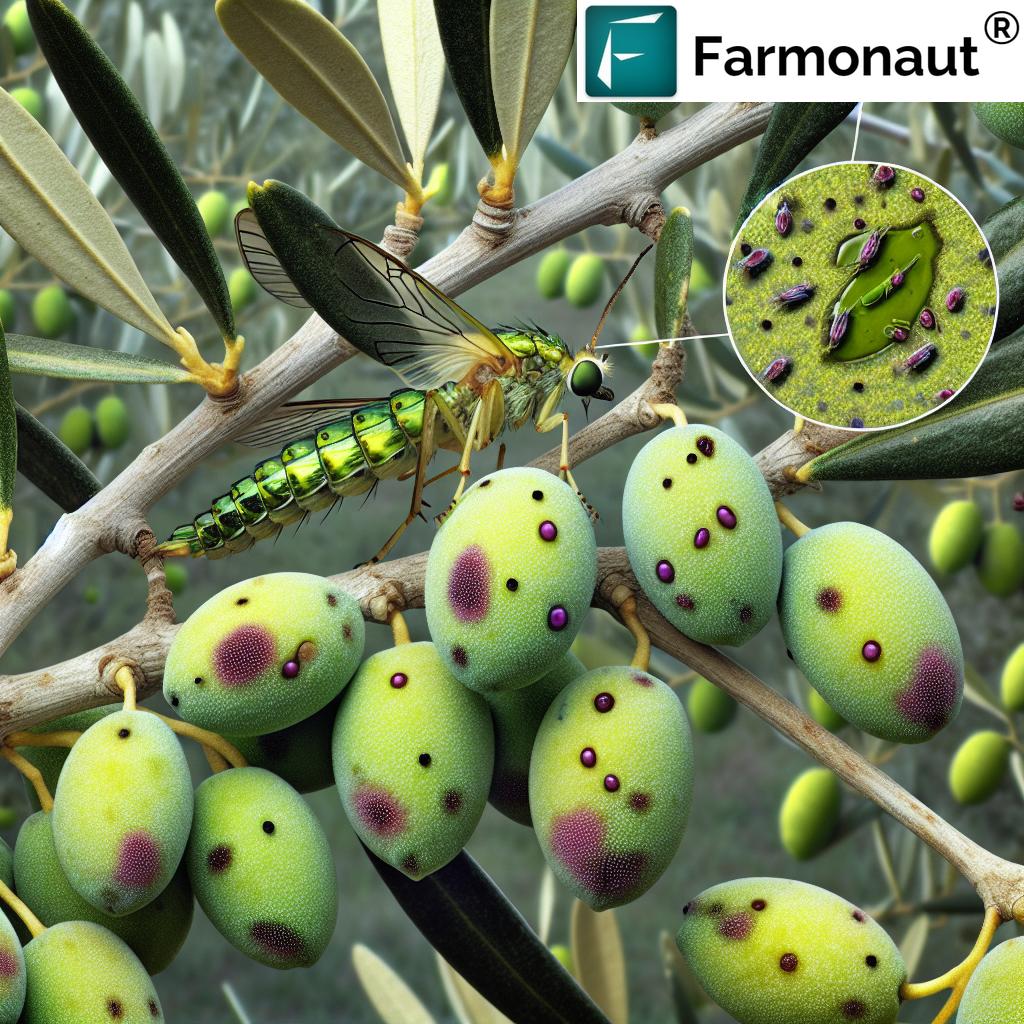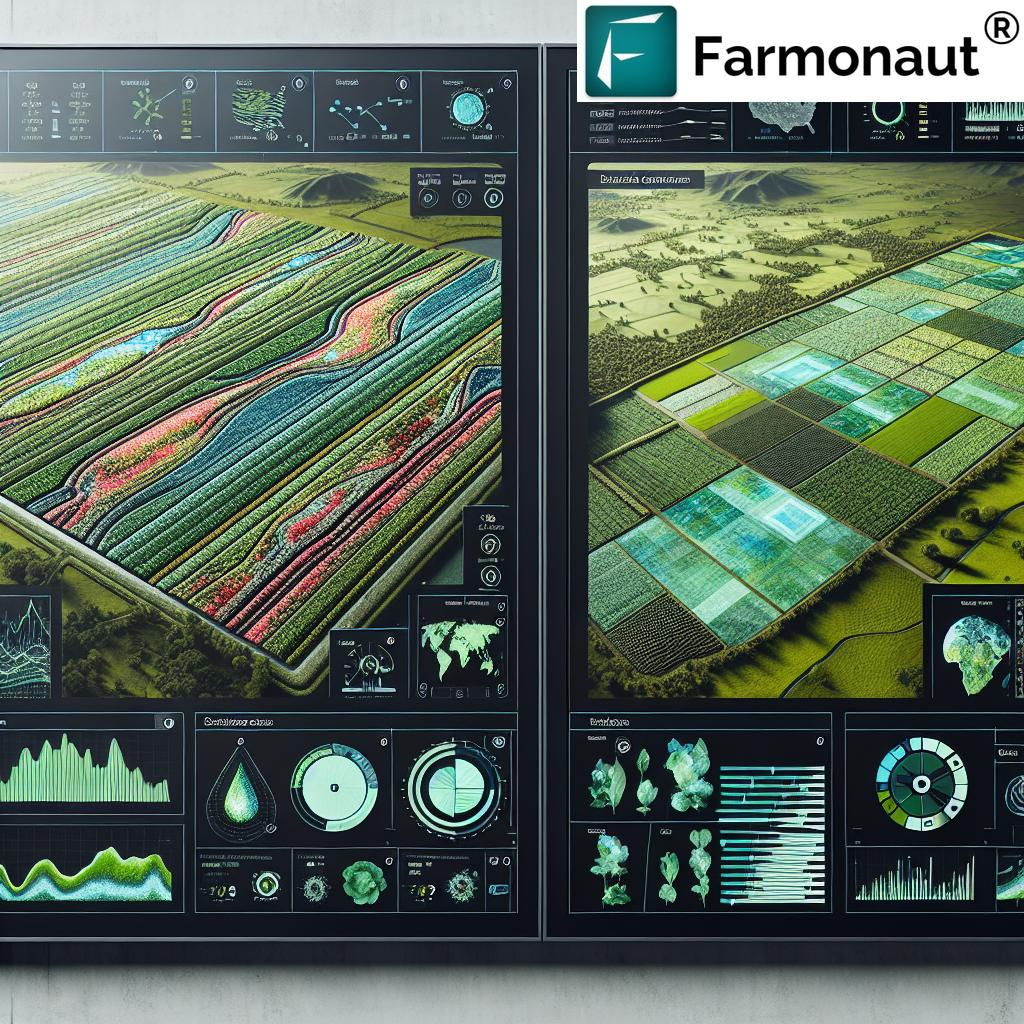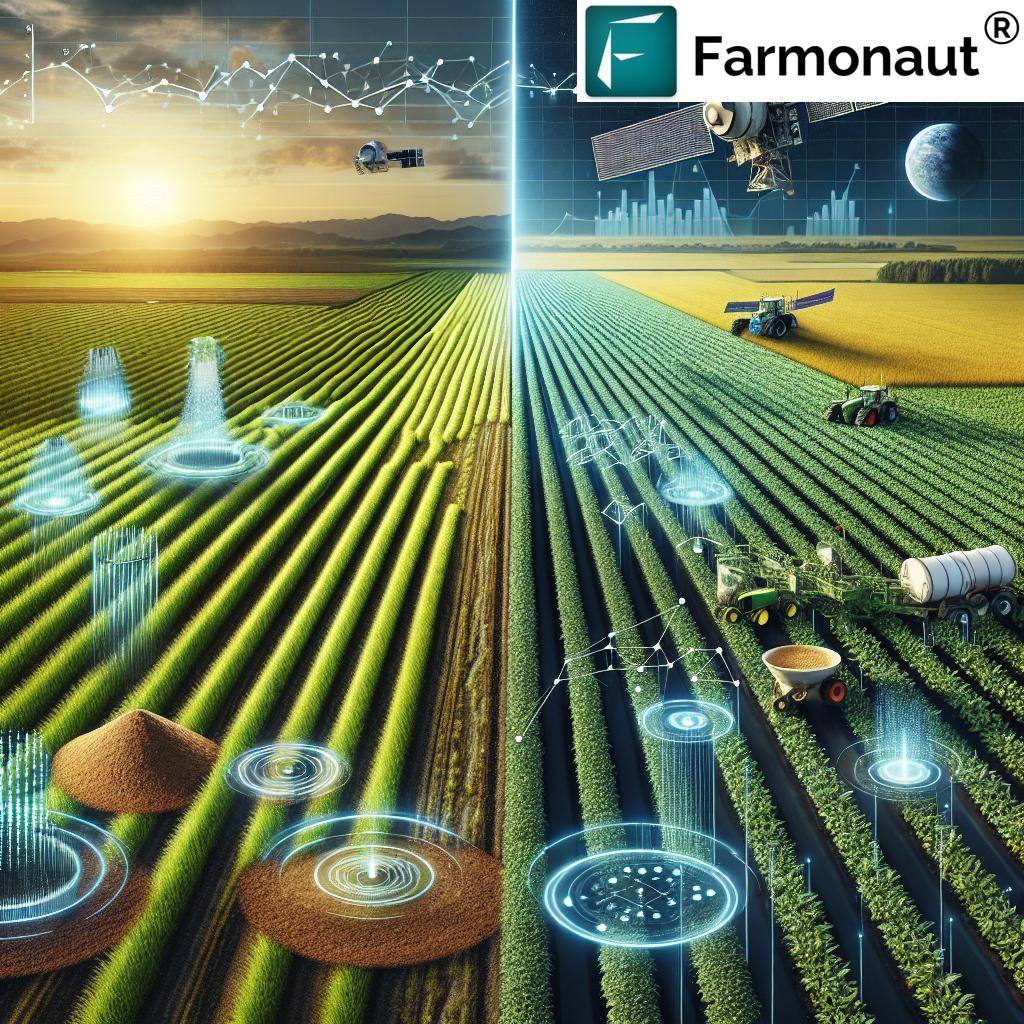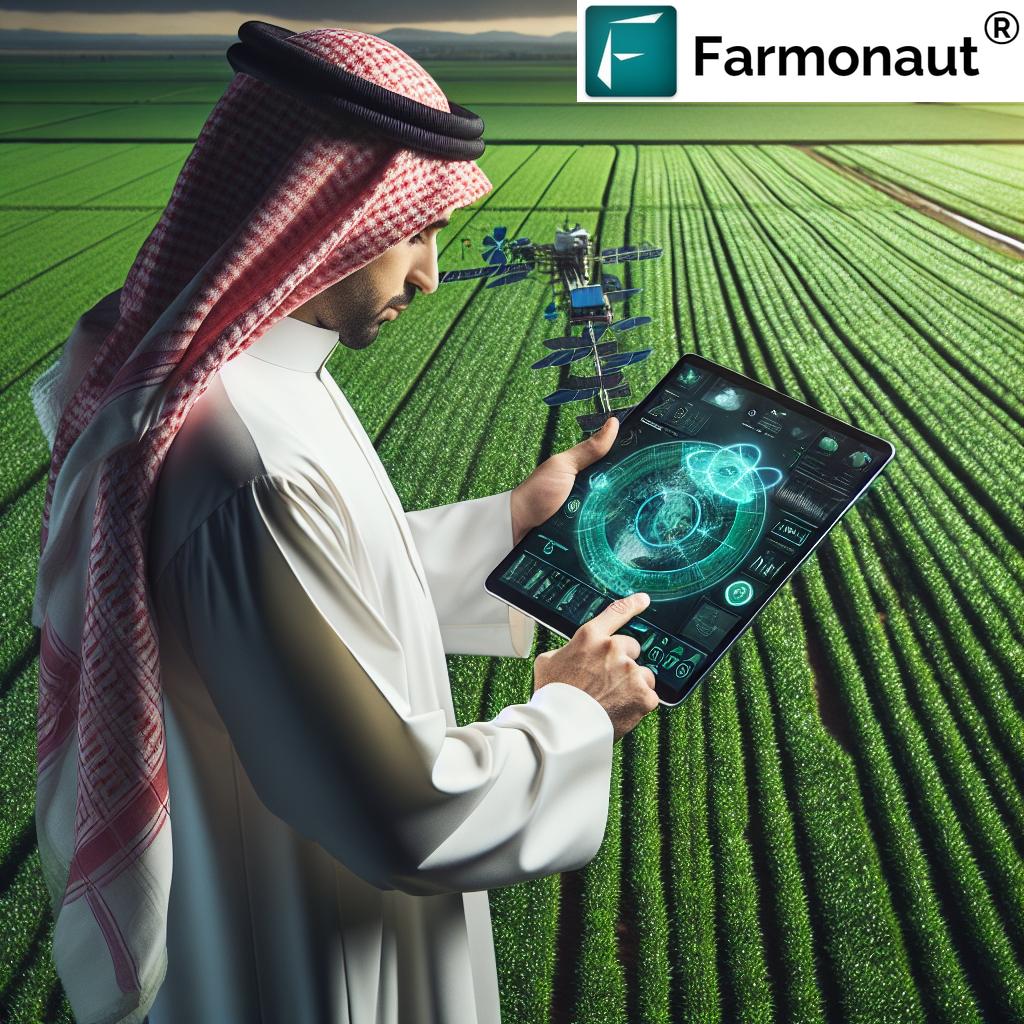Revolutionizing Australian Wine Exports: How AgTech and GIS Solutions Boost Vineyard Management and Global Market Access
“Australian wine exports reach over 100 countries, with the industry adopting GIS solutions to optimize vineyard management and global market access.”
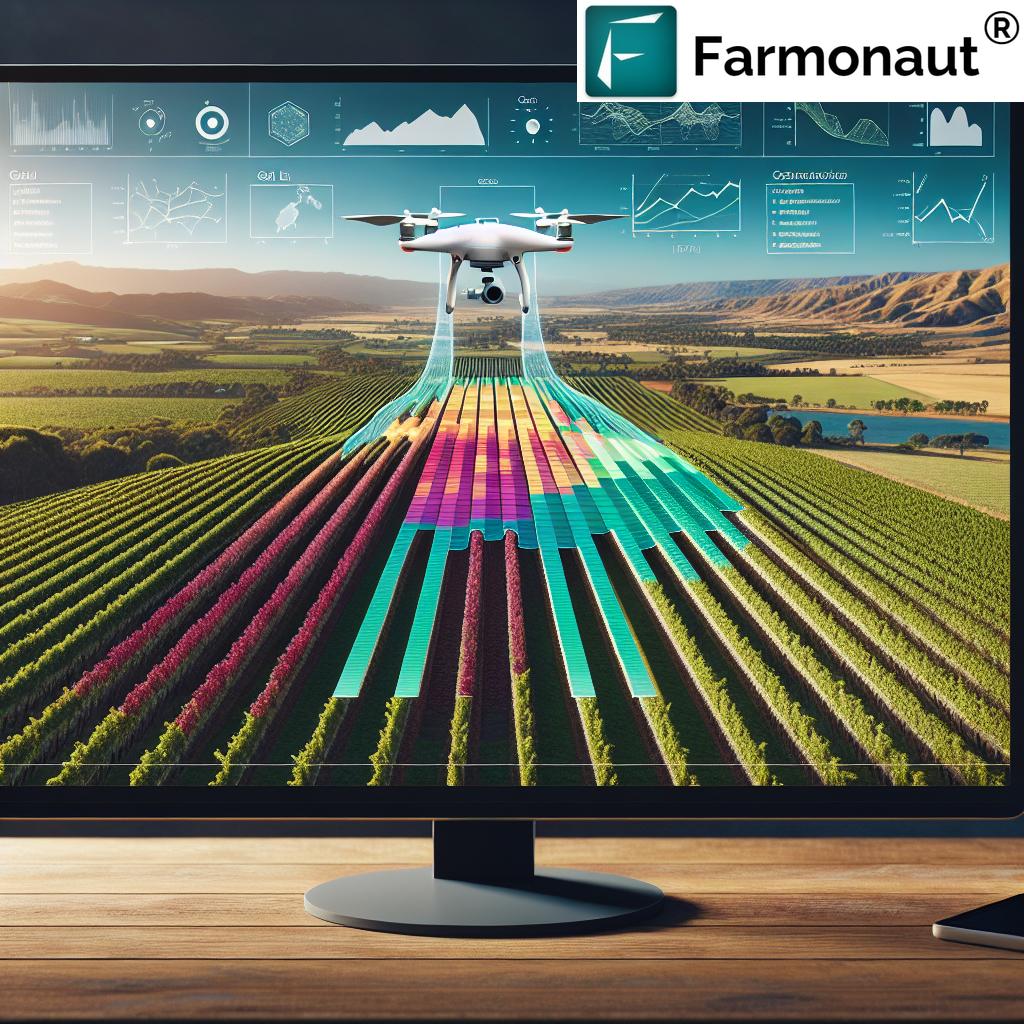
In the ever-evolving landscape of the global wine export market, the Australian wine industry stands at the forefront of innovation, leveraging cutting-edge AgTech and GIS solutions to revolutionize vineyard management and enhance its competitive edge. As we navigate the complexities of international trade and sustainability, we find ourselves at a pivotal moment where technology and tradition converge to shape the future of viticulture and wine production.
In this comprehensive guide, we’ll explore how the Australian wine sector is embracing sustainable winegrowing practices, innovative agtech solutions, and advanced wine production tools to meet the demands of global wine markets. From navigating intricate wine labelling requirements to understanding export regulations for key markets like the United States, China, and Europe, we’ll provide you with essential insights to thrive in the competitive world of wine production and trade.
The Australian Wine Industry: A Global Powerhouse
Australia’s wine industry has long been recognized for its quality and diversity, with renowned regions such as the Barossa Valley, Margaret River, and Hunter Valley producing world-class wines. The sector’s commitment to innovation and quality has positioned Australian wines as sought-after products in global markets, contributing significantly to the country’s economy and international reputation.
- Australia is the world’s 5th largest wine exporter by value
- The industry contributes over $40 billion annually to the Australian economy
- Australian wines are exported to more than 100 countries worldwide
As we delve deeper into the intricacies of the Australian wine export market, it’s crucial to understand the role of technology in shaping modern viticultural practices and export strategies.
AgTech Revolution in Vineyard Management
The adoption of Agricultural Technology (AgTech) has been a game-changer for vineyard management in Australia. These innovative solutions are helping winemakers optimize their operations, improve wine quality, and enhance sustainability practices.
Satellite-Based Crop Monitoring
One of the most significant advancements in vineyard management is the use of satellite-based crop monitoring systems. Companies like Farmonaut are at the forefront of this technology, offering solutions that provide real-time insights into vineyard health and performance.
Farmonaut’s satellite-based farm management solutions offer vineyard owners and managers a comprehensive suite of tools for monitoring crop health, soil moisture levels, and other critical metrics. By leveraging multispectral satellite imagery and advanced AI algorithms, Farmonaut provides actionable insights that help optimize irrigation, fertilizer usage, and pest management strategies.

GIS Solutions for Precision Viticulture
Geographical Information Systems (GIS) have become indispensable tools in modern viticulture. These systems allow winemakers to create detailed maps of their vineyards, analyzing factors such as soil composition, topography, and microclimates to make informed decisions about planting, irrigation, and harvesting.
- Mapping vineyard variability to optimize grape quality
- Identifying ideal planting locations for different grape varieties
- Monitoring and managing water resources more efficiently
- Tracking the spread of pests and diseases for targeted interventions
By integrating GIS data with satellite imagery and on-ground sensors, vineyard managers can create a comprehensive digital twin of their property, enabling precise and data-driven decision-making.
Sustainable Winegrowing Practices
Sustainability has become a cornerstone of the Australian wine industry, with a growing emphasis on environmentally friendly practices and resource conservation. The adoption of sustainable winegrowing techniques not only benefits the environment but also enhances the quality and marketability of Australian wines in global markets.
Water Management and Drought Resilience
In a country prone to drought, efficient water management is crucial for the wine industry’s long-term viability. Advanced irrigation systems, coupled with satellite-based soil moisture monitoring, allow vineyard managers to optimize water usage and improve grape quality.
Farmonaut’s platform provides real-time data on soil moisture levels, enabling vineyard owners to make informed decisions about irrigation scheduling and water allocation. This precision approach not only conserves water but also enhances the flavor profile of the grapes, contributing to higher quality wines.

Carbon Footprint Reduction
The Australian wine industry is committed to reducing its carbon footprint, with many wineries implementing renewable energy solutions and sustainable farming practices. Farmonaut’s carbon footprinting feature allows agribusinesses to track their emissions in real-time, facilitating more sustainable operations and compliance with environmental regulations.
By adopting these sustainable practices, Australian wineries are not only contributing to environmental conservation but also meeting the growing consumer demand for eco-friendly products in global markets.
Navigating Wine Export Regulations
Exporting wine to international markets requires a thorough understanding of complex regulations and compliance requirements. Australian wine exporters must navigate a myriad of rules governing labelling, packaging, and product standards across different countries.
Wine Labelling Requirements
Accurate and compliant labelling is crucial for successful wine exports. Each target market has its own set of regulations that must be adhered to:
- United States: Requires approval from the Alcohol and Tobacco Tax and Trade Bureau (TTB) for label designs
- European Union: Mandates specific information on grape varieties, alcohol content, and geographical indications
- China: Has strict requirements for Chinese language translations and product registration
Australian winemakers must ensure their labels comply with both domestic and international standards to avoid delays and rejections at customs.
Export Documentation and Compliance
Navigating the paperwork associated with wine exports can be daunting. Key documents required for most international shipments include:
- Certificate of Origin
- Export Declaration
- Commercial Invoice
- Packing List
- Bill of Lading or Airway Bill
Additionally, many countries require specific certifications for organic wines or those with protected geographical indications. Staying up-to-date with these requirements is essential for smooth export operations.
Leveraging Technology for Export Success
In today’s digital age, technology plays a crucial role in streamlining export processes and enhancing market access. Australian wine exporters are increasingly turning to digital solutions to manage compliance, track shipments, and engage with international customers.
Blockchain for Traceability and Authenticity
Blockchain technology is revolutionizing supply chain management in the wine industry. By implementing blockchain-based traceability solutions, such as those offered by Farmonaut, Australian wine exporters can:
- Ensure product authenticity and combat counterfeiting
- Provide consumers with detailed information about the wine’s origin and journey
- Streamline customs clearance processes with transparent, tamper-proof documentation
Farmonaut’s API allows for seamless integration of blockchain traceability into existing supply chain systems, enhancing transparency and trust in the global wine trade.

AI-Powered Market Intelligence
Artificial Intelligence is helping Australian wine exporters make data-driven decisions about market entry and product positioning. AI algorithms can analyze vast amounts of data to provide insights on:
- Consumer preferences in different markets
- Pricing strategies and competitive positioning
- Emerging trends and market opportunities
By leveraging these technologies, Australian wine exporters can tailor their strategies to specific markets, increasing their chances of success in the competitive global wine trade.
Wine Tourism and Regional Development
“Wine tourism contributes significantly to Australia’s economy, with over 8 million visitors annually exploring the country’s diverse wine regions.”
Wine tourism plays a vital role in promoting Australian wines globally and contributing to regional economic development. The integration of technology and innovative marketing strategies has transformed the wine tourism experience, attracting visitors from around the world.
Virtual Cellar Door Experiences
With the advent of virtual reality (VR) and augmented reality (AR) technologies, Australian wineries are offering immersive virtual cellar door experiences to potential customers worldwide. These digital tours allow international wine enthusiasts to:
- Explore vineyards and winemaking facilities remotely
- Participate in virtual wine tastings with winemakers
- Learn about the unique terroir and winemaking processes of different regions
These virtual experiences not only promote Australian wines but also inspire wine lovers to visit the country’s wine regions in person.
Sustainable Wine Tourism
As sustainability becomes increasingly important to consumers, Australian wine regions are emphasizing eco-friendly tourism practices. This includes:
- Offering carbon-neutral wine tours
- Promoting organic and biodynamic vineyards
- Showcasing sustainable winemaking practices to visitors
By aligning wine tourism with sustainable practices, Australian wineries are appealing to environmentally conscious travelers and enhancing their brand image in global markets.
Climate Research and Viticultural Practices
Climate change poses significant challenges to the wine industry worldwide, and Australia is at the forefront of research into climate-resilient viticultural practices. By leveraging advanced climate modeling and GIS technologies, researchers and vineyard managers are developing strategies to adapt to changing conditions.
Climate-Smart Viticulture
Australian researchers are exploring various approaches to climate-smart viticulture, including:
- Developing drought-resistant grape varieties
- Implementing canopy management techniques to mitigate heat stress
- Exploring alternative wine regions suited to warmer climates
Farmonaut’s satellite monitoring system plays a crucial role in this research by providing real-time data on vineyard conditions, enabling researchers to track the impact of climate change on grape growth and wine quality.
Precision Pest and Disease Management
Climate change has also altered the patterns of pest and disease outbreaks in vineyards. Advanced GIS and satellite imaging technologies are helping vineyard managers implement more precise and effective pest management strategies:
- Early detection of pest infestations through multispectral imaging
- Targeted application of treatments to reduce chemical use
- Predictive modeling of disease outbreaks based on climate data
By leveraging these technologies, Australian vineyards can maintain high-quality grape production while minimizing environmental impact and reducing costs.
Innovation in Wine Production Tools
The winemaking process itself is benefiting from technological advancements, with new tools and techniques enhancing efficiency and quality control:
Automated Fermentation Systems
State-of-the-art fermentation tanks equipped with sensors and automation technology allow winemakers to:
- Monitor and control fermentation parameters in real-time
- Adjust temperature and oxygen levels automatically
- Achieve more consistent fermentation results across batches
AI-Powered Quality Control
Artificial Intelligence is being employed in various stages of wine production:
- Automated sorting of grapes using computer vision
- Predictive analytics for optimal blending ratios
- Sensory analysis and quality prediction based on chemical composition
These innovations are helping Australian winemakers maintain high standards of quality and consistency, crucial for success in competitive export markets.
The Role of Farmonaut in Australian Viticulture
Farmonaut’s advanced satellite-based farm management solutions are playing an increasingly important role in Australian viticulture. By providing real-time data and actionable insights, Farmonaut is helping vineyard managers optimize their operations and produce higher quality grapes.
| Vineyard Management Aspect | Traditional Methods | With Farmonaut Satellite System | Potential Impact on Wine Quality/Exports |
|---|---|---|---|
| Irrigation Management | Manual soil moisture checks, fixed irrigation schedules | Real-time soil moisture data, AI-driven irrigation recommendations | Improved water use efficiency, better grape quality, consistent yields |
| Pest and Disease Detection | Regular visual inspections, reactive treatments | Early detection through multispectral imaging, targeted interventions | Reduced crop losses, lower chemical use, higher quality grapes |
| Harvest Timing | Based on calendar dates and manual sampling | Precise ripeness monitoring through satellite data, optimal harvest predictions | Improved wine flavor profiles, consistent quality across vintages |
| Soil Health Monitoring | Annual soil tests, uniform fertilizer application | Continuous soil health tracking, variable rate fertilizer recommendations | Enhanced terroir expression, sustainable soil management |
| Climate Adaptation | Reactive measures to weather events | Predictive climate modeling, proactive adaptation strategies | Increased resilience to climate change, maintenance of wine quality |
Key Benefits of Farmonaut for Australian Vineyards:
- Cost-effective precision agriculture solutions accessible to vineyards of all sizes
- Improved decision-making through real-time data and AI-driven insights
- Enhanced sustainability through optimized resource use and reduced environmental impact
- Increased transparency in the supply chain, boosting consumer trust and export potential
By leveraging Farmonaut’s technology, Australian vineyards can enhance their competitiveness in the global wine market while maintaining their commitment to quality and sustainability.
Future Trends in Australian Wine Exports
As we look to the future of Australian wine exports, several trends are likely to shape the industry:
Emerging Markets
While traditional markets like the UK and US remain important, Australian winemakers are increasingly focusing on emerging markets in Asia and Eastern Europe. These markets present both opportunities and challenges:
- Growing middle-class populations with increasing interest in wine
- Need for tailored marketing strategies to suit local tastes and preferences
- Navigating complex regulatory environments in new markets
Premiumization
There’s a growing trend towards premiumization in the global wine market, with consumers willing to pay more for high-quality, unique wines. Australian winemakers are well-positioned to capitalize on this trend by:
- Focusing on small-batch, artisanal production methods
- Highlighting unique terroir and winemaking traditions
- Leveraging technology to ensure consistent quality and traceability
Direct-to-Consumer Sales
E-commerce and direct-to-consumer sales are becoming increasingly important channels for wine exports. Australian wineries are investing in digital platforms to:
- Reach international consumers directly
- Offer virtual tastings and personalized experiences
- Build brand loyalty across borders
Conclusion
The Australian wine industry stands at the cusp of a new era, where technology and tradition converge to create unparalleled opportunities in the global wine market. By embracing innovative AgTech solutions like Farmonaut’s satellite-based management systems, implementing sustainable practices, and leveraging cutting-edge production tools, Australian winemakers are well-positioned to overcome challenges and thrive in competitive international markets.
As we look to the future, the continued integration of GIS solutions, AI-driven insights, and blockchain technology will play a crucial role in enhancing vineyard management, ensuring product quality and authenticity, and streamlining export processes. The Australian wine industry’s commitment to innovation, sustainability, and quality will undoubtedly secure its position as a leader in the global wine trade for years to come.
For vineyard owners and managers looking to leverage the power of satellite technology in their operations, Farmonaut offers a comprehensive suite of tools to optimize vineyard management and boost productivity. Explore Farmonaut’s solutions today and take the first step towards revolutionizing your vineyard management practices.
FAQs
Q: How is technology changing the Australian wine industry?
A: Technology is revolutionizing the Australian wine industry through satellite-based crop monitoring, GIS solutions for precision viticulture, AI-powered market intelligence, and blockchain for traceability. These innovations are improving vineyard management, wine quality, and export strategies.
Q: What are the main challenges for Australian wine exports?
A: Key challenges include navigating complex international regulations, adapting to climate change, meeting sustainability demands, and standing out in competitive global markets. Technology and innovation are helping address these challenges.
Q: How does Farmonaut contribute to the Australian wine industry?
A: Farmonaut provides satellite-based farm management solutions that offer real-time insights into vineyard health, soil moisture levels, and other critical metrics. This technology helps optimize irrigation, pest management, and overall vineyard operations, contributing to improved wine quality and sustainable practices.
Q: What are the emerging trends in Australian wine exports?
A: Emerging trends include a focus on premium wines, exploration of new markets in Asia and Eastern Europe, increased direct-to-consumer sales through e-commerce, and a growing emphasis on sustainable and organic wine production.
Q: How important is sustainability in the Australian wine industry?
A: Sustainability is crucial in the Australian wine industry, with a growing emphasis on water conservation, carbon footprint reduction, and eco-friendly practices. These efforts not only benefit the environment but also enhance the marketability of Australian wines globally.




